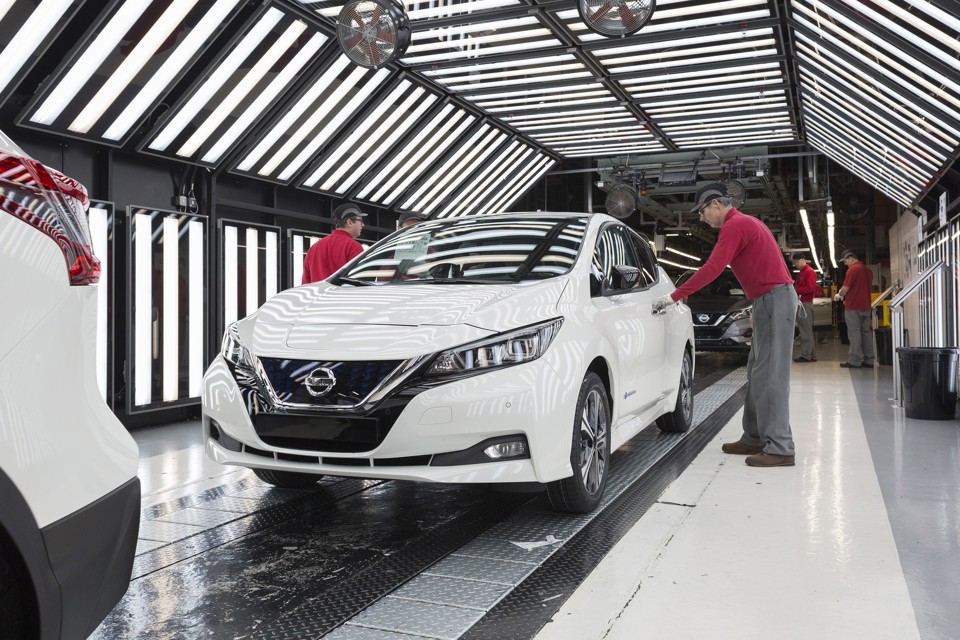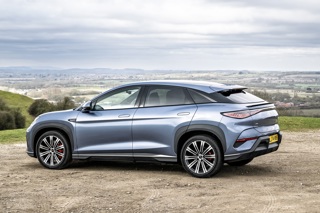Soaring energy costs could lead to increases in the price of new cars with electric vehicles (EV) facing a price rise 'double whammy', SMMT chief executive Mike Hawes has warned.
Vehicle manufacturers are already facing a rise in the cost costs of materials such as lithium and cobalt, key to electric vehicle production, with some experts expecting this alone to be enough to push vehicle prices up as the car parc increasingly electrifies.
However, Hawes said the cost of energy will become the industry’s most pressing challenge once the ongoing semiconductor supply issue is resolved.
“There is the expectation will improve as the year goes on, particularly in the second half of the year, but there will still be ripples into 2023,” said Hawes, speaking at a media event where it was announced that the number of cars produced in the UK in 2021 fell 6.7% to 859,575 units.
 “If the semiconductor issue can be resolved, energy will be the most immediate and pressing challenge as we can see what’s coming down the line in terms of price increases.
“If the semiconductor issue can be resolved, energy will be the most immediate and pressing challenge as we can see what’s coming down the line in terms of price increases.
“The margins on volume car manufacturers are wafer thin and energy will potentially be going up 50%, 60% or 70%.
“There were vehicle price increases last year and, like any other manufacturing sector, if you’re facing increasing input costs, it is going to pull pricing up.
“But manufacturers will always do everything they can to mitigate those costs, either through investment or reductions in other areas.”
This means EVs could face a pricing double whammy.
Typically a battery accounts for around 40% of the cost of making a EV, with the cost of producing them having fallen by almost 90% in the past 10 years.
Figures from Bloomberg New Energy Finance show the inflation-adjusted price of battery packs for cars was $1,200 per kWh in 2010. This had fallen to $132 last year.
The impact this has on the cost of producing an EV is significant. Assuming a kWh price of $132, it would have cost $6,000 to produce a 50kWh battery last year. In 2010, this would have been $60,000.
Prices of many of the elements used in EV battery production rose sharply in the second half of 2021: for example, battery-grade lithium carbonate rose to a record high of $41,060 per tonne, more than five times higher than last January, cobalt doubled to $70,208, while nickel jumped 15% to $20,045 a tonne.
“We’ve got an ever-increasing reliance upon elements such as nickel, cobalt, lithium, manganese and copper for EV batteries,” said James Nicholson, partner in advanced manufacturing and mobility at EY.
“For a while now, a lot of those commodities have had supressed prices and there’s a strong chance that as demand goes up and these metals become quite scarce, we will see some of those material prices continue to lift.
“That’s going to put a pinch point on the cost of the materials that go into battery cells and that could lift the price to the carmaker and eventually the consumer.”
James Frith, head of energy storage research at Bloomberg New Energy Finance, added: “This creates a tough environment for automakers, particularly those in Europe, which have to increase EV sales in order to meet average fleet emissions standards,” says
“These automakers may now have a choice between reducing their margins or passing costs on, at the risk of putting consumers off purchasing an EV.”
AM recently published a new insight feature detailing the impact and possible mitigation of the car retail sector's rising energy costs.
Rainworth Motor Group said its bills rose £40,000 in a week during a renegotiation of tariffs.
Author: Andrew Ryan

















Login to comment
Comments
No comments have been made yet.